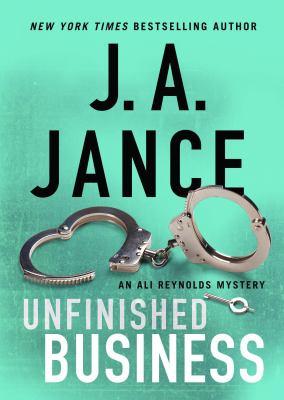
Unfinished business
Mateo Vega, a one-time employee of Ali Reynold's husband, B. Simpson, has spent the last sixteen years of his life behind bars. According to the courts, he murdered his girlfriend. But Mateo knows that her real killer is still on the loose, and the first thing he's going to do when he gets a taste of freedom is track him down. After being granted parole, a wary Mateo approaches Stu Ramey of High Noon Enterprises for a reference letter for a job application, but to his surprise, Stu gives him one better: He asks him to come on board and work for B. once again. Just as Mateo starts his new job, though, chaos breaks out at High Noon--a deadbeat tenant who is in arrears has just fled, and tech expert Cami Lee has gone missing. As Ali races to both find a connection between the two disappearances and help Mateo clear his name with the help of PI J.P. Beaumont, tragedy strikes in her personal life, and with lives hanging in the balance, she must thread the needle between good and evil before it's too late.
Available Copies by Location
| Location | |
|---|---|
| Community Centre | Checked out |
Other Formats
Browse Related Items
- ISBN: 9781432886981
- Physical Description 543 pages (large print) ; 23 cm.
- Edition Large print edition.
- Publisher [Place of publication not identified] : [publisher not identified], 2021.
Content descriptions
| General Note: | GMD: large print. |
Series
Additional Information



